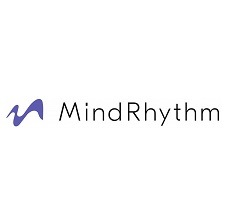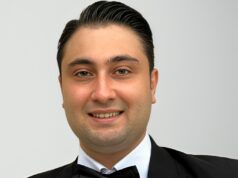 MindRhythm, in partnership with Wayne State University School of Medicine (Detroit, USA), recently announced that the first patient has been enrolled in the pivotal portion of its EPISODE-VS study—which is designed to validate that use of the company’s proprietary Harmony headset can rapidly identify large vessel occlusion (LVO) ischaemic strokes in the prehospital setting to optimise triage and improve stroke outcomes.
MindRhythm, in partnership with Wayne State University School of Medicine (Detroit, USA), recently announced that the first patient has been enrolled in the pivotal portion of its EPISODE-VS study—which is designed to validate that use of the company’s proprietary Harmony headset can rapidly identify large vessel occlusion (LVO) ischaemic strokes in the prehospital setting to optimise triage and improve stroke outcomes.
“Stroke is the leading cause of sudden disability and the fifth leading cause of death in the USA,” said John Keane, co-founder and CEO of MindRhythm. “Large vessel occlusions are the most severe ischaemic strokes and must be treated within hours to avoid catastrophic brain damage or death, underscoring the need to diagnose and treat stroke as quickly as possible. MindRhythm’s Harmony has been shown to accurately diagnose LVO strokes in a prehospital setting, thereby enabling direct triage to a comprehensive stroke centre. We are delighted to enrol the first patient with the goal of gaining FDA [Food and Drug Administration] clearance following the trial’s completion. Ultimately, we hope to significantly revolutionise stroke triage by providing rapid stroke identification data to expedite care and save lives.”
The pivotal portion of the EPISODE trial is expected to enrol between 200 and 250 patients, all of whom will be evaluated in the prehospital environment by paramedics/emergency medical technicians (EMTs) when stroke is suspected. Patients suspected of stroke will have a non-invasive headset placed to record their HeadPulse—a newly discovered physiological parameter that changes dramatically when an LVO stroke occurs—during the encounter. This knowledge is expected to aid in the triage decision of the destination hospital for stroke patients. The primary objective of the trial is to validate the sensitivity and specificity of LVO diagnosis with the Harmony device against standard of care.
“Despite recent advances in stroke care, appropriate prehospital triage and transport remain challenging,” said James Paxton (Wayne State University, Detroit, USA), the primary investigator of the trial. “Every 40 seconds, another American has a potentially debilitating stroke, and up to 30% of these strokes are LVO strokes requiring specialised intervention that is not available at all hospitals. The Harmony headset has the potential to revolutionise prehospital care by providing first responders with a non-invasive, reliable means for detecting LVO stroke that is available minutes, perhaps even hours, before conventional methods can confirm the diagnosis. Time lost is brain lost, and delays can lead to devastating injuries that may never heal. This technology is going to change lives.”
In previous studies, cranial accelerometery—the primary technology used in the Harmony headset—has been shown to reliably detect LVO in hospitalised patients suspected of experiencing an ischaemic stroke, according to a MindRhythm release. However, whereas previous studies assessed patients in the hospital, the EPISODE-VS trial is designed to validate device performance in the prehospital environment.









